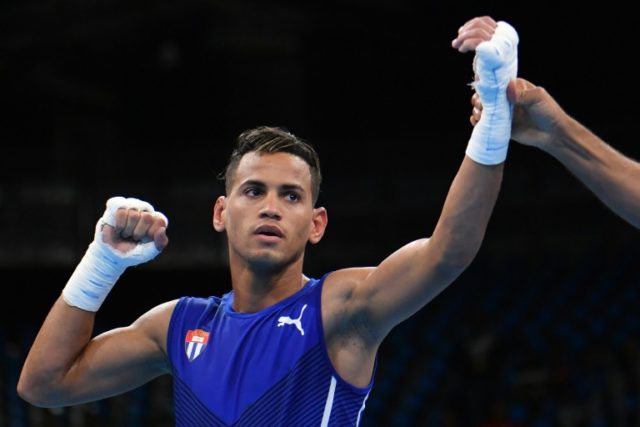Rio de Janeiro (AFP) – Seasoned boxing observers at the Rio Olympics agree: as Cuba slowly invites in the curious outside world so its boxers too are more open than ever before.
Journalists who have covered past Olympics say that Cuba’s boxers — consistently among the best at any Games and again sparkling in Rio — usually hurry past media in the “mixed zone” where reporters gather to grab a quick interview with the fighters fresh from the ring.
This time, however, the Cubans are different, stopping to chat with the media — including foreign ones, via a translator — and in some cases for longer than their opponents.
Reigning Olympic flyweight champion Robeisy Ramirez — competing in the bantamweight class in Brazil — on Thursday lingered patiently to reply to questions, talking of how he asks “God and all the saints” to protect him when he steps into the ring.
“Like all Cubans, I believe in God and the saints,” said the 22-year-old Ramirez.
As innocuous as the comment might sound, it was once something that a Cuban could never say because the communist-run country was for a long time an officially atheist state, before its leaders became less hostile to religion after the collapse of ally the Soviet Union in 1991.
It is not only Ramirez who is engaging comfortably with the media in Rio.
Stylish world champion Joahnys Argilagos — who lost in Friday’s light-flyweight semi-final — and heavyweight Erislandy Savon, nephew of the triple Olympic champion Felix, are among a new generation of Cubans opening up to reporters fishing for a story.
And unlike many of the other big boxing countries in Rio, such as Britain, which has a press officer lurking nearby to whisk their fighter away after a short, allotted time, the Cubans go it alone in the mixed zone.
Also unlike a decade ago, no subject seems off-limits, with some of the Cubans freely discussing their religious beliefs, their taste for America’s NBA basketball, Spanish La Liga football — even to a small degree politics, say observers.
– ‘Different mindset’ –
The changes in Cuba, including restoring relations with old foe the United States and gradually liberalising its moribund economy, are also reflected in this generation of Cuban boxers in how they dress, the snazzy earphones they listen to music with, their phones, even their haircuts.
“I’m fond of playing FIFA games because I’m a fan of Barca and Lionel Messi,” said Ramirez, smiling to reveal two gold-colour-plated front teeth that are more Hollywood than Havana as he engaged with an Indian journalist on the respective merits of Barcelona and Real Madrid.
The prodigious Argilagos, 19, is another who with his hair dyed a tinge of dark blond and his bright Puma footwear looks very different from the Cuban boxers of yesteryear that still shape how the current crop fight.
Pablo De Jesus, an Agence France-Presse journalist who is in Rio for his seventh Olympics, says he has never seen Cuban boxers so open.
“Ten years ago the Cuban boxer wouldn’t talk about certain matters, like religion or professional sports, because this was a taboo in Cuba and they were scared to talk about that,” he said on Friday.
“But this new generation of boxers have a different mindset, they have iPhones and Facebook, they are more connected with the outside world.”
De Jesus says how at previous Olympics, Cuban athletes would say only the bare minimum to reporters, just a “yes” or a “no” or mumble a stock reply.
“Now it is less strict,” says De Jesus, adding however that at the Pan American Games last year in Toronto, a Cuban official in the shadows instructed triple jumper Pedro Pablo Pichardo to dedicate his gold medal to Fidel Castro — something Cuban sportsmen routinely used to do.

COMMENTS
Please let us know if you're having issues with commenting.